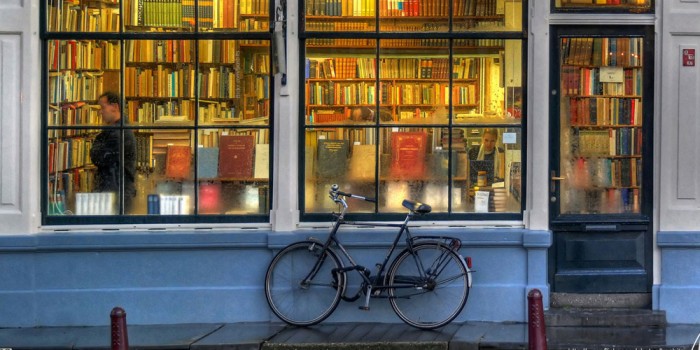The Customer Loyalty Myth
The suggestion that customers can be loyal is odd. Think about it for a moment; who are you really loyal towards? Your family, your friends, your colleagues? Loyalty exists for...
Literary Criticism: Review of an Independent Book Retailer

If you have seen the Tom Hanks Meg Ryan movie, “You’ve Got Mail” you may remember the plot revolves around the email exchanges of the two characters. Hanks runs the large corporate book store – FoxBooks, and Ryan the small independent Shop Around the Corner.
In the course of the movie the implication is that the small independent can offer so much more by way of knowledgeable care and product expertise.
The suggestion is that it’s a sad indictment of our obsession with ‘value’ (for which read price) that we choose economies of scale over service…
“… we’ll just put up a big sign: ‘Coming soon, a FoxBooks superstore and the end of civilization as you know it.’”
So does the small book store have anything special to offer its customers – more to the point did Buy the Book in Nottingham have anything to differentiate it positively from its FoxBooks-style competitors?
Location is usually important. Buy the Book’s presence on a residential shopping street, rather than in the City centre made it an easy choice: somewhere to park the car inexpensively and a short drive, rather than the full-on bustle of the city centre.
Since my visit was with two book-hungry children (and a benevolent grandparent) the expectation of a smaller choice was actually an advantage.
Studies have shown that excessive choice leads to fewer purchases and greater dissatisfaction with what is ultimately chosen.
Even with the small stores smaller selection both phenomena were in evidence with my children, who flitted from book to book excitedly, committed to a title, and then had the loss of relinquishing it when a more attractive alternative was discovered.
The children’s books were ideally placed at the back of the store – reducing parental stress and enabling children to explore without close parental supervision – and the lighting and colours triggered the right associations to leave us feeling we could take our time.
The books themselves, however, were poorly arranged. There were no clear categories and the mixture of display stands meant there was no way of focusing the decision on one type of book; all I could do was let the children roam, making a small choice feel much larger than necessary.
I’m a fan of being left to browse in any store, but the staff would have been well-advised to speak to us at some point. This would have helped in two ways:
A conversation asking if the children had particular interests would have enabled them to direct us to relevant sections or titles.
Fads spread through children’s playgrounds faster than Usain Bolt when he’s actually trying for the entire 100m. Finding that several children in the area are asking for Ben 10 or Astrosaurs books is a useful way of identifying what you should be ordering next.
At the till the total was on the high side, FoxBooks would almost certainly have been cheaper. And we were asked if we had a loyalty card.
Loyalty cards, from a consumer perspective are really all about frequency: if someone is buying a conservatory that they expect to last thirty years and the firm asks if they have a loyalty card they should feel worried.
On the other hand if they can get something back from choosing one supermarket over another each week loyalty cards make a lot of sense, and can actually live up to their name (i.e. they can build loyalty).
But it takes a relatively high frequency of use (and benefit) to make the card memorable. If it’s forgotten it can’t build loyalty.
Even worse, asking the customer if they have it may trigger the memory that he did, reminding him that he’s lost out on some potential gain. Just at the moment you want the customer to have their maximum excitement of acquisition associated with your store, they have disappointment and loss.
At an unconscious level this is a damaging association best avoided.
Image courtesy: MorBCN